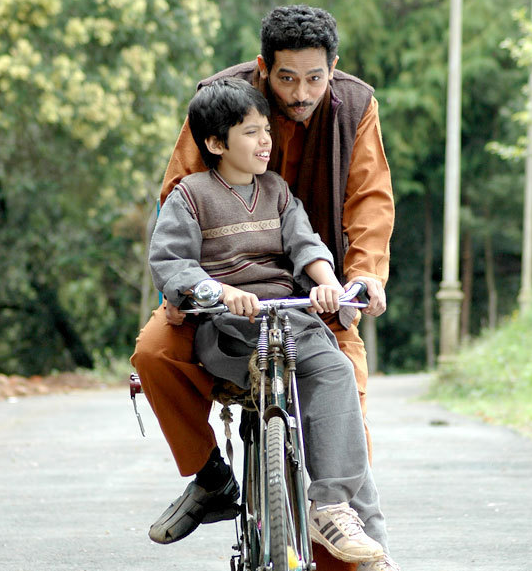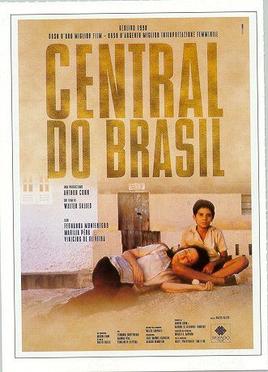
(Summery)
Ali fetches his little sister Zahra's pink shoes after the shoemaker has repaired them. Ali puts down the shoes to get some potatoes at the grocer's. While he is preoccupied, a blind garbage man accidentally picks up the shoes, hidden in a bag, and takes them away. Frantic to find them, the young boy knocks over crates of vegetables and is chased away by the grocer.

Ali's father, anxious to earn more money, borrows some gardening equipment and heads off with Ali to the rich suburbs of Tehran to find some gardening work. They try many places without success, though Ali proves to be a great help to his tongue-tied father. Finally they come upon a mansion in which a six-year-old boy named Alireza lives under the care of his grandfather. While Ali plays with Alireza, his father works. When he is finished, Ali's father is surprised and elated by how generous the grandfather is. On the way home, their bicycle's brakes fail and the father is slightly injured in the resulting crash.
Finally, Ali learns of a high-profile children's footrace involving many schools; the third prize is one week at a vacation camp and a pair of sneakers. To his bitter disappointment, in a hard-fought dash to the finish, he accidentally places first instead. However, there is a quick shot of the children's father's bicycle, showing two new pairs of shoes among his purchases. In the final shot, Ali is shown dipping his blistered feet in a pool. Some versions include an epilogue revealing that Ali eventually achieves success in a racing career.
(Reaction)
Children of Heaven does provide a kindly, enveloping sense of Iranian life and customs, from the way the family prepares sugar cubes to be served at a mosque to the way Zahra helps care for elderly neighbors. These moments come more easily to Mr. Majidi than his studiously bittersweet ending for what is, despite its surface bleakness, an essentially sunny story.
What struck me in this movie was the devotion of brother and sister, their willingness to work together through a problem, and how they face the realities of their poor life in the south of Tehran. The family is poor by American standards, with a father who's barely getting by and who needs his third-grade son to help him find extra work in the richer sections of the city. But he Â’s a proud man, who Â’s willing to work hard and who has helped to imbue, along with a sick mother, in his children a dedication to working hard and making sacrifices for each other. This is a man who's a success not on the basis of what he makes in salary or owns, but in what he Â’ s helped to create in his children .In this movie you get to see Iran, the rich, the poor, and the regimentation that comes with the regime in power for children in school, where they line up and pay tribute to the great leader. Mostly you get to see a wonderful story that touches on fundamental values in our lives, and shows that there Â’s always hope if we make the effort and we give to our children the right things.








